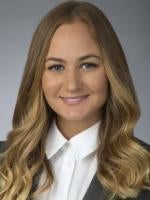The U.S. Patent and Trademark Office (USPTO) published a new rule on July 2, 2019, requiring trademark applicants, registrants, and parties to Trademark Trial and Appeal Board proceedings whose domicile is not located within the United States or its territories to be represented before the USPTO by a U.S.-licensed attorney as of August 3, 2019. Domicile is typically defined as the permanent legal place of residence of an individual or the headquarters of an entity. The rule does not retroactively apply to applications filed before August 3, 2019, but impacts such applications if an office action is issued on or after August 3, 2019, requiring the applicant to designate a U.S.-licensed attorney to respond. This rule is intended to streamline trademark registrations and reduce the potential of invalidations by providing the USPTO a more efficient way to enforce statutory and regulatory requirements.
This rule limits the reciprocal rights of Canadian attorneys and agents that have previously had authority to appear before the USPTO. Canadian patent agents can no longer represent Canadian trademark applicants, registrants, or parties to trademark proceedings before the USPTO in trademark matters. Additionally, while Canadian attorneys and trademark agents can continue to represent their Canadian clients under the designation of additional appointed practitioners, the USPTO will only communicate with an appointed U.S.-licensed attorney.
There is no mechanism at this time to designate a U.S.-licensed attorney on applications to extend protection into the United States for international trademarks pursuant to the Madrid Protocol. Therefore, the USPTO may be more lenient in applying this rule to Madrid filings and allow the application to proceed, but will likely require a U.S.-licensed attorney to be designated if there is an office action relating to the Madrid filing.
The TTAB will suspend any proceedings where a foreign-domiciled party does not currently have a designated U.S.-licensed attorney. Thus, any foreign-domiciled trademark applicants, registrants, and parties to trademark proceedings should consider seeking counsel from a U.S.-licensed attorney sooner than later to avoid delays in the prosecution or maintenance of its U.S. trademarks.





 />i
/>i

